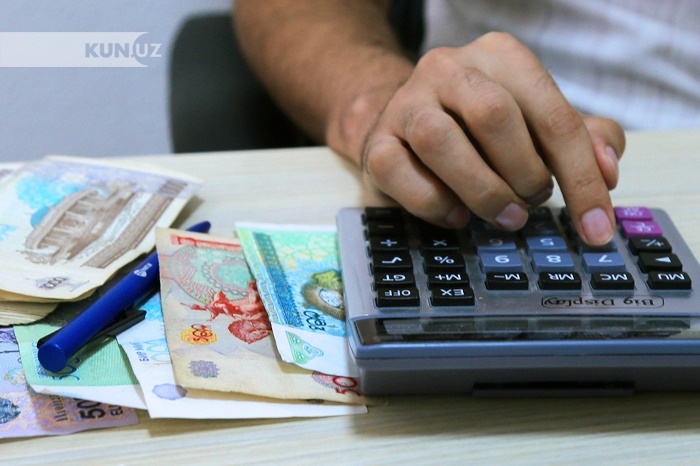Komil Sayidov: Simplification of the income tax is the most acceptable option for Uzbekistan

The number of legitimate taxpayers was 4,6 million out of more than 13 million able-bodied population, Chief Inspector of the Department of Income Taxation at the State Tax Committee Komil Sayidov writes in his article published on UzA.
Mr. Sayidov connects this with the fact that Uzbekistan has a complicated system of taxation of personal income.
So, for example, in 2018, the tax for an income between one and five minimum monthly wages was 7,5%, from five to ten minimum monthly wages – 16,5%, from ten or more MMW – 22,5 %. Calculation of these taxes on an ascending scale was complex and confusing. Moreover, the salary was levied on an 8% compulsory insurance payment to the off-budgetary Pension Fund.
In accordance with this procedure, a large part of the tax burden levied on wages was borne by employers – entrepreneurs, private business and small businesses.
“A tax of up to 300-450 thousand soums was levied from 1 million soums calculated per employee. As a result, a very heavy tax burden discouraged employers from creating new jobs, as well as paying large wages to their employees,” the article says.
According to Sayidov, in order to avoid these payments, entrepreneurs chose other ways - payment of wages in an “envelope” in cash, hiding the actual number of employees, transferring functions not related to the main activity of the enterprise – cleaning, information technology, security, logistics, marketing-outsourcing services based on contracts.
“This state has reached such an extent that the number of legal taxpayers in the republic with more than 13 million able-bodied population was only 4,6 million,” Sayidov said.
It is also noted that in the “shadow economy”, there were millions of compatriots who earned money, fed the family, but did not officially work anywhere. They could not enjoy the protection of trade unions, could not receive mortgage loans, did not receive a pension in the future, did not apply to them the benefits provided by labor legislation.
“Much to our regret, in the form of a tax not collected in the amount of billions of sums, there was enormous damage to the state budget,” the report says.
The article notes that in accordance with the reforms in tax policy, the situation has changed: the tax burden has been reduced. Simple, transparent and most importantly, convenient, fair tax rates are set for an employee and employer.
From January 1, 2019, a single 12% tax rate on personal income has been determined. Meanwhile, worldwide, the average size of this tax is 20%:
“Simplification of the income tax is the most acceptable option for countries such as ours, where the economy is in the development stage and large-scale reforms are underway. Let us give one example: in 2001, the transfer of tax on income from a progressive scale to a simplified procedure brought Russia success in one year and increased the tax base from the labor fund by 50%,” Sayidov writes.
It should be recalled that since January 1, 2005, a cumulative pension system has been introduced in the republic. In order to provide social support to citizens, monthly contributions transferred to personal savings pension accounts amounted to 2% of the employee’s monthly wages and were deducted from the amount of income tax paid to individuals in the budget.
The article says that starting from January 1, 2019, from 12% of the tax rate on income, 0,1% is transferred to personal savings accounts. The calculation is very simple. For example, an employee’s wage is 3 million soums. Of these, the income tax is 360 thousand soums.
“The employee will receive 2 million 640 thousand soums (3,000,000 – 360,000). But the tax will be transferred to the budget in the amount of not 360, but 357 thousand soums. The remaining 3 thousand soums will be directed to personal savings accounts in People’s Bank. In this direction, facilities are also provided for employers (enterprises and organizations). For example, in 2018, an employer every month until the 15th day of the following month had to submit to the local branch of People’s Bank a register of employees to which accumulative pension contributions were transferred,” Sayidov writes.
In accordance with the amendments to Article 188 of the Tax Code, it is now not necessary for an employer to submit a register of employees to the local branch of the People’s Bank.
Certificates of paid contributions are submitted with the calculations of income tax and unified social payments. As a result, calculations are reduced, employer’s time is saved, the article states.
“In conclusion, it should be noted that the republic’s leadership has taken the first step in improving tax legislation. Now we, all citizens, must support these reforms,” Sayidov said.
Related News

16:09 / 09.02.2026
Social tax threshold doubled for self-employed under business regulation overhaul

16:38 / 04.02.2026
Anthropic and Valve register for VAT in Uzbekistan

15:57 / 04.02.2026
Uzbekistan pays out over UZS 1.5 trillion in tax cashback in 2025

12:41 / 02.02.2026




